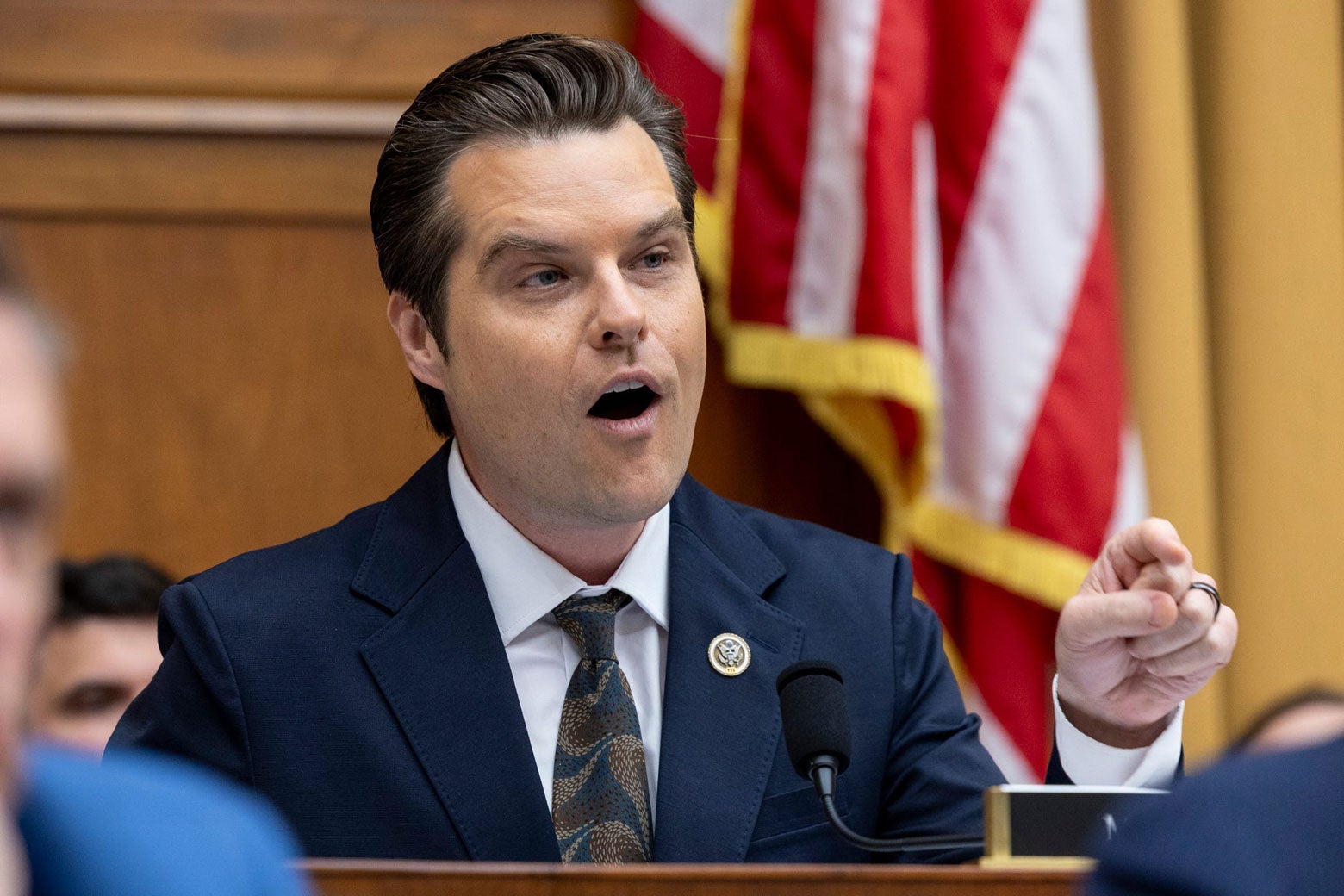Entertainment
Impact on Sexual Assault Survivors if Matt Gaetz Leads the DOJ

What would it mean for victims of sexual assault if Matt Gaetz takes over the Department of Justice?
The conversation surrounding Gaetz and his potential nomination as U.S. attorney general raises serious concerns, especially in light of ongoing allegations against him, including sexual misconduct and drug use, which are currently under investigation by the House Ethics Committee.
We seem to be caught in a troubling cycle. Every time a man with credible allegations of misconduct is put forward for a significant role, there’s an immediate uproar. Victims come forward with serious claims, leading to intense public discussions and, more often than not, a backlash that dismisses these allegations. The narrative shifts to a “he said, she said” scenario, where the accused is often vindicated while the women’s voices are minimized and disregarded.
This pattern has played out in notorious instances, such as the confirmations of Justice Clarence Thomas and Justice Brett Kavanaugh, where the narratives around their alleged misconduct were systematically downplayed. This time around, it is imperative for both political parties to ensure that such dismissals do not happen again if Gaetz is nominated to lead the DOJ.
To be clear, the investigation into Gaetz by the DOJ began under the Trump administration, initiated by then-Attorney General Bill Barr, and not as some orchestrated attack intended to undermine him. While the inquiry concluded without criminal charges, it does not negate the legitimate basis for the investigation. Factors such as the statute of limitations or the high burden of proof required for convictions can prevent charges from being filed, but that should not shield Gaetz from scrutiny during the confirmation hearings. These hearings act as a vital evaluation process for any candidate’s suitability; a standard far less rigorous than criminal proceedings should be employed to assess his past actions.
Claiming his lack of criminal charges constitutes an exoneration is misleading at best. The absence of a conviction in court does not endorse his qualifications for such a critical role.
Moreover, while the House Ethics report on Gaetz remains unpublished, this should not deter the Senate from responsibly gathering information on the serious allegations against him. Many of these accusations, which include claims regarding sexual encounters with minors and drug use, have already been publicly disclosed by lawmakers and the attorneys of the alleged victims. The evidence against him is not hidden but rather has permeated public discourse.
Understanding the critical role of the attorney general, we must recognize the implications of having someone like Gaetz in charge of the DOJ. The credibility of law enforcement heavily influences whether victims report crimes such as sexual assault or trafficking. Trust in the DOJ would be severely undermined under Gaetz’s leadership, particularly given his history of belittling victims’ claims.
Predictably, defense attorneys in sex-crime cases would likely leverage Gaetz’s previous comments about victims’ testimonies in their arguments, which could further erode public confidence in the justice system. The implications of appointing someone with his track record could send a distressing message—that justice for victims is secondary to the interests of powerful men.
While it is within Trump’s rights to nominate anyone he chooses for such an important role, it is imperative that the Senate scrutinizes the implications of confirming a nominee with Gaetz’s controversial history. Senators must think critically about how such a confirmation could affect the very individuals—the prosecutors, victims, jurors, and judges—who are essential in fighting wrongdoing.
Confirming Gaetz would echo a troubling message about the value placed on victims’ voices compared to those of powerful individuals. It’s about asking ourselves what we are willing to accept moving forward and how we wish to construct our system of justice. If the Senate proceeds with this confirmation, the implications will extend far beyond politics and resound in the lives of countless victims seeking justice.
